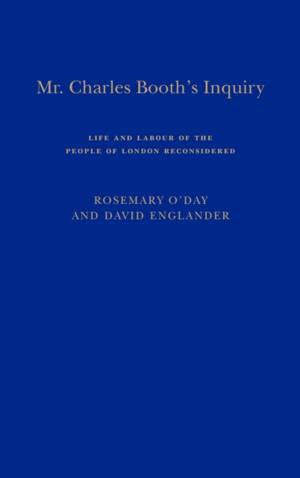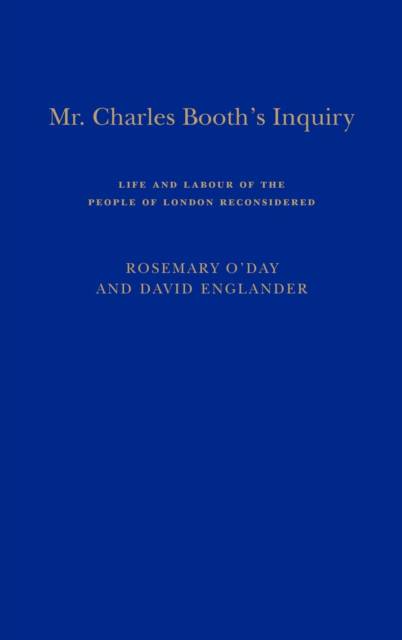
- Afhalen na 1 uur in een winkel met voorraad
- Gratis thuislevering in België vanaf € 30
- Ruim aanbod met 7 miljoen producten
- Afhalen na 1 uur in een winkel met voorraad
- Gratis thuislevering in België vanaf € 30
- Ruim aanbod met 7 miljoen producten
Zoeken
Mr. Charles Booth's Inquiry
Life and Labour of the People in London Reconsidered
Rosemary O'Day, Dand Englander
Hardcover | Engels
€ 296,95
+ 593 punten
Omschrijving
Charles Booth's pioneering survey, Life and Labour of the People in London, published in seventeen volumes between 1889 and 1903, was a landmark in empirical social investigation. His panorama of London life has dominated all subsequent accounts: its scope, precision and detail make it an unrivalled source for the period.
Mr. Charles Booth's Inquiry is the first systematic account of the making of the survey, based upon an intensive examination of the huge Booth archive. This contains far more material than was eventually published, in particular on women, work, religion, education, housing and social relations, as well as on poverty. While the book acknowledges the leading role of Booth himself, it highlights the significance of the contributions of his associates, including Beatrice Potter (Webb), Octavia Hill, Llewellyn Smith and G.H. Duckworth. Life and Labour of the People in London is a founding text of both social history and modern sociology. It has however commonly been misunderstood and frequently misused. Mr. Charles Booth's Inquiry sets the survey in perspective and demonstrates the richness of the Booth archive and its potential for modern scholarship in both history and the social sciences.Specificaties
Betrokkenen
- Auteur(s):
- Uitgeverij:
Inhoud
- Aantal bladzijden:
- 256
- Taal:
- Engels
Eigenschappen
- Productcode (EAN):
- 9781852850791
- Verschijningsdatum:
- 13/05/2005
- Uitvoering:
- Hardcover
- Formaat:
- Genaaid
- Afmetingen:
- 156 mm x 234 mm
- Gewicht:
- 539 g

Alleen bij Standaard Boekhandel
+ 593 punten op je klantenkaart van Standaard Boekhandel
Beoordelingen
We publiceren alleen reviews die voldoen aan de voorwaarden voor reviews. Bekijk onze voorwaarden voor reviews.








